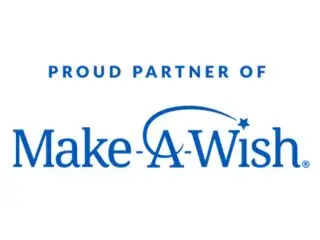A resume is your first opportunity to impress employers in the health care industry. Learn how to create a persuasive medical resume, highlighting your passion and experience, to open doors to your dream career in health care.  Medical careers can be some of the most rewarding occupations for those devoted to improving the health of others. When looking for a job as a health care professional, the strength of your medical resume will determine whether you advance to an interview. Creating a great medical resume involves more than simply listing the typical information you might find for a less specialized job, like server or cashier. Entering the professional workforce requires a higher level of meticulousness and forethought. In order to land the job you want, you will want to know the advantages of creating a great resume, how to best convey your abilities, the difference between a CV and resume and what to do after giving your resume to a potential employer.
Medical careers can be some of the most rewarding occupations for those devoted to improving the health of others. When looking for a job as a health care professional, the strength of your medical resume will determine whether you advance to an interview. Creating a great medical resume involves more than simply listing the typical information you might find for a less specialized job, like server or cashier. Entering the professional workforce requires a higher level of meticulousness and forethought. In order to land the job you want, you will want to know the advantages of creating a great resume, how to best convey your abilities, the difference between a CV and resume and what to do after giving your resume to a potential employer.
Why a Great Resume Is Worth the Effort
From a business sense, every second wasted equals wasted money. Most companies spend less than 5 minutes evaluating a resume before making a decision to either reject a candidate or inquire about an interview. Your resume (or CV) is your first opportunity to impress the hiring department, so as they sort through the fluffy resumes to get to applicants with real potential, you’ll want to make sure you have spent the time making it the best it can be. A great resume will propel you to the front, or at least into, the pool of candidates awaiting hire. Poor resumes go into the shred bin.
How to Make a Good Resume
So what separates the cream from the crop? At the very least1, your resume should have a clean, crisp look that’s well organized, easy to read and free from spelling and grammar errors. Proofreading shows that you put care and detail into your work. In fact, up to 93 percent of surveyed employers say that an error on a resume might negatively impact a candidate’s chances of being hired. At the top of your resume, underneath your name and contact info, you may wish to include a short personal statement, sometimes called “Objective,” “Personal Statement” or “Professional Profile.” This is your opportunity to explain your goals in your medical career and why you want the available position. It acts as a brief introduction and can highlight any specialized skills, experience or aptitudes you may wish to immediately bring attention to. Your resume should reflect your specific experience and skills. It should also be targeted for a specific position or industry; to do this, include medical keywords so that your resume will pass through any keyword-identification screenings. For example, you may include phrases like “medical billing” if you aim to work in a hospital’s Accounts Receivables department. Focus on what you want the employer to know about you, and cut out anything irrelevant. Want to know how to make a resume stand out? Include any specialized skills you possess, such as proficiency in computer software, customer service or fluency in other languages. Relevant volunteer or educational experience may also help your resume shine. The skills to put on a resume should reflect why you are a superior candidate for the position. If there’s room left over, you might consider adding in some personal hobbies or passions to make you relatable, and you might also include links to your LinkedIn or social media profiles so they can find more information about you.
What to Include in a Resume
A typical medical resume will include the following typical subheadings2:
- Name & Contact Information
- Personal Statement/ Objective
- Education
- Work History or Experience
- Certifications and Licenses
- “References Available Upon Request”
Your medical resume should be a 1–2 page document that summarizes your experience. Each section may or may not have a list of duties performed, depending on space. Focus on explaining the most relevant positions, and include the most important parts of the job. After you have completed your resume, you should always send the primary copy to the appropriate person, such as the Director of Nursing Services. However, you may also consider sending out copies to others involved in the hiring process, such as Human Resources Director, Nurse Managers or Department Heads.
Difference Between CV and Resume
As a medical professional, you may have already completed your training, or you may be waiting to take an examination. Your medical resume gives a potential employer insight into your previous positions in your capacity, if any, and your accomplishments. Your resume should convey that you take your work seriously.
CV vs. Resume
Many medical professionals will only need to focus on creating a resume, but some may benefit from putting together a Curriculum Vitae (CV). What is a CV and when might you need one? A CV is for people in medical, academic, creative or scientific fields whose experiences may not be easily captured in the format of a simple resume. A CV may be many pages long, as it should include all of your academic work, research, presentations, experience teaching, awards, conferences you have attended, any publications you have been featured in and any other professional experience. What Does CV Stand For? Curriculum Vitae literally means “the course of life,” which shows the truly encompassing nature of the document. A CV will typically include subheadings in this order:
- Name & Contact Information
- Areas of Interest
- Education
- Grants, Honors and Awards
- Publications and Presentations
- Employment and Experience
- Scholarly Memberships
- References
Before you begin writing a medical resume, answer these questions to determine if you should create a medical resume or a cv.
- Will I be working in medical administration?
- Will I be working in a management position?
- Will I be working in accounting, purchasing, plant operations or MIS?
- Do I have a very particular position or career I am specifically trained for?
If you answered yes to these questions, you will probably be asked for a medical resume.
- Do I have specialized research or academic interests?
- Do I have multiple, sometimes simultaneous, projects to highlight?
- Have I received grants, scholarships, awards or honors?
- Am I aiming for a high-level, specialized academic or scientific career?
If you answered yes to these questions, you will probably be asked for a CV. Physician positions and any position that involves teaching students will likely require both a CV and a medical resume.
Job Interview Tips
If you send off your resume and receive a call for an interview, that’s great news. However, while you may feel inclined to rest and celebrate this accomplishment, the true bulk of work occurs while preparing for an interview. It’s helpful to do a mock interview with a friend or family member, so you can have your answers ready for anticipated questions. Writing notecards or bullet points of some of your achievements, special skills, examples of character and work experiences can prepare you to ace the interview with confidence. When it’s time to meet with your interviewer 3, you should bring a notepad, pen, copies of your resume, samples of previous work, if any, and a list of questions about the position.
How to Dress For an Interview
You will need to wear appropriate business attire, not scrubs or a laboratory coat, to your interview. Ensure you have showered, combed your hair and taken care of all hygiene matters prior to entering the interview room. If you smoke, do not smoke from the time you shower until after your interview. Some medical facilities may have strict policies for hiring non-smokers, so plan accordingly. Maintain eye contact throughout the interview, except for glancing at your notes if you need to. Be professional, friendly and considerate. You definitely want to mention your achievements and accomplishments. Remember, the interview is your chance to convince the employer you are perfect for the job, so don’t be shy. Say as much as you can about why you are qualified for the position. Be confident and polite.
The Importance of Following Up After Your Interview
Immediately upon completing your interview, thank the interviewer for the opportunity. After he or she finishes replying, express your gratitude a second time. You can also remind the interviewer of your qualifications and skills in a final subtle way. For example, you may say, “I am looking forward to using my position as a registered nurse to help those in need.” After leaving the interview, you should send an additional thank you note to the respective parties. You may opt to do this via e-mail, direct mail or both. Only 8 percent of potential employers exclusively request thank you notes by direct mail, but 60 percent say it’s important to at least send a follow up thank you note. If you are not selected for the position, a follow up note will remind the employer about you, and it may open the door for a future position, when one becomes available. You only get one shot to impress, interview and land each job position, in most cases. By putting the time into creating a thoughtful medical resume or CV and preparing well for an interview, you will have the greatest chance for getting your desired position in the medical field. Additional Sources: 1 – http://money.usnews.com/money/careers/slideshows/9-tips-to-make-your-resume-stand-out/10 2 – http://writingcenter.unc.edu/handouts/curricula-vitae-cvs-versus-resumes/ 3 – https://www1.maine.gov/labor/careerctr/employment/interview-tips/index.shtml



